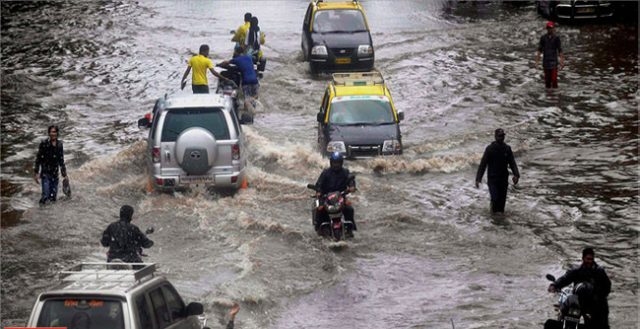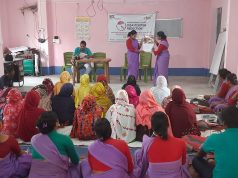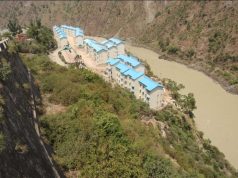Working Towards Disaster Risk Reduction
According to the data on the official website of United Nations Office for Disaster Risk Reduction (UNISDR), over 1,000 cities in Asia Pacific have signed up to its Making Cities Resilient campaign following a historic commitment made by all 329 municipalities of Bangladesh to join the campaign.
The UNISDR and its partners are working towards sustainable urbanisation by taking proactive actions. The Making Cities Resilient Campaign (MCRC) – launched in May, 2010 – addresses issues of local governance and urban risk. The Campaign is led by the UNISDR but is self-motivating, partnership and city-driven with an aim to raise the profile of resilience and disaster risk reduction among local governments and urban communities worldwide.
In the backdrop of the 2018 Asian Ministerial Conference on Disaster Risk Reduction (AMCDRR 2018) taking place in the Mongolian capital, Ulaanbaatar, Dr. Manu Gupta, co-founder and executive director of SEEDS and a member of the steering committee of MCRC, stressed upon the common challenges facing municipal authorities in creating safer cities.
“One common problem is that most cities don’t have dedicated resources for risk reduction initiatives as it tends to be low on their list of priorities and there is no single allocated budget,” said Dr. Gupta. “But now there is increasing acknowledgement that the effects of climate change are creating huge unpredictability in urban areas. In the past decade, major cities across the Asia Pacific region, including Jakarta, Mumbai, Bangkok and Manila, have suffered unprecedented flooding and this is turning the debate towards where the investment needs to go,” he added.
The Ten Essentials for Making Cities Resilient scorecard, developed by UNISDR, aims to accelerate implementation of the Sendai Framework for Disaster Risk Reduction (2015-2030) at the local level. In the CSO Stakeholder conference held in the backdrop of AMCDRR, a spirited discussion of achievements and challenges of Sendai Framework implementation and the civil society’s commitments for the next two years were discussed. Among the key highlights were commitments around:
- Continued support of communities from risk mapping to risk informed development planning to voice their concerns, strengthen knowledge and facilitate equitable participation in DRR in cooperation with the local and national Governments in the implementation of the Sendai Framework.
- Ensuring resources and benefits of DRR are reaching to the last mile on-time so that no one is left behind; and reinforce resilience of households and communities by promoting a ‘culture of safety’.
- Spreading the benefits of DRR across the spectrum by promoting evidence building of local level implementation of DRR through independent assessments and research.
- In continued appreciation and recognition of local and indigenous culture, we aim to ensure inclusiveness of all groups especially women, children, elderly, persons with disability and other marginalised groups in the design, planning, implementation and monitoring of preparedness, response and recovery actions.
- As ADRRN, represent the voice of the civil society organizations, networks and groups on DRR in partnership with regional and national platforms, national government and other stakeholders.
- Become a resource for the government to promote durable, scalable, replicable and sustainable local level strategies, initiatives and innovations piloted by civil society organizations.
- Strengthen the implementation of DRR policies and actions by assessing the national and local level indicators developed in line with the Sendai Framework Monitor.
- Promote the collection of gender, age, ethnicity and disability dis-aggregated data to monitor inclusion in all initiatives.
- Identify and capture information and knowledge on good practices of disaster risk management and disseminate them for wider learning at national and regional forums.
- Foster development leadership and forums at local level and engage them and their voices at national and regional platforms; and
- Promote learning and strengthen space for north-south and south-south engagement and regional cooperation among civil society stakeholder groups with a particular emphasis on effective early warning mechanisms of trans-boundary hydro-meteorological hazards.
Thank you for reading the story until the very end. We appreciate the time you have given us. In addition, your thoughts and inputs will genuinely make a difference to us. Please do drop in a line and help us do better.
Regards,
The CSR Journal Team













